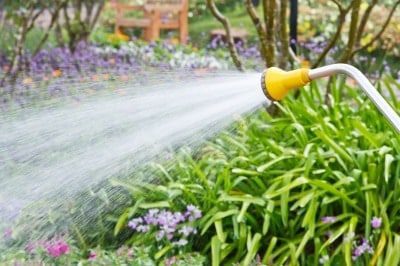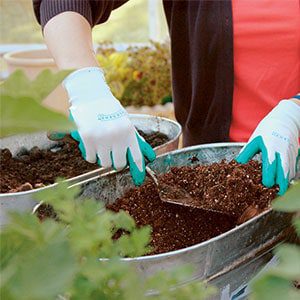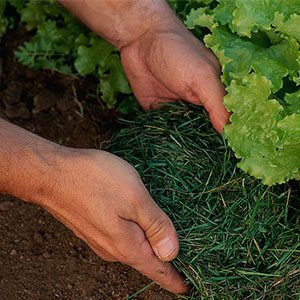Plants that don’t grow, bloom or flourish like they should are often victims of water stress. This is especially true in our Rocky Mountain region where drought and extreme temperature changes can be detrimental, if not fatal, to non-native plants. There are several things you can do to protect your plants from water stress — the most important of which is planning a water-wise landscape.

What is water stress?
Water stress can occur in two ways. The first is when roots lack an adequate water supply. The second source of water stress is transpiration — a process by which water evaporates from the stems and leaves. In dry climates, transpiration can easily exceed hydration, which is detrimental to plant health.
Your plants will tell you when they’re suffering from a lack of water. Signs of water stress include:
- Wilting
- Less intense coloration
- Reduced or non-existent blooms and/or fruits
- Death
In some cases, soil amendments and irrigation adjustments may do the trick. You might even transplant the victims to a site with more ideal growing conditions. In a worst case scenario, you may lose the plant altogether.
The following tips can help you avoid water stress on your landscape.

Design a drought-tolerant landscape. Planting a drought-tolerant landscape is the simplest way to prevent water-stress. Water-wise landscaping in Colorado begins with knowing your own landscape, amending the soil as needed and planting more native plant species, or species that are well-suited to arid climates.

Amend your soil. Organic soil amendments make a remarkable difference in the soil’s ability to retain water. Each soil type has its own benefits and drawbacks. Organic soil amendments create sponge-like clumps that retain water and enhance soil nutrients.

Use mulch. A healthy mulch layer, up to four-inches deep, greatly reduces soil evaporation rates and will also insulate root beds from extreme heat and cold.
Are you worried about water stress? Contact Lifescape Colorado, and our maintenance team can evaluate your current landscape and make recommendations for a more water-wise landscape.
